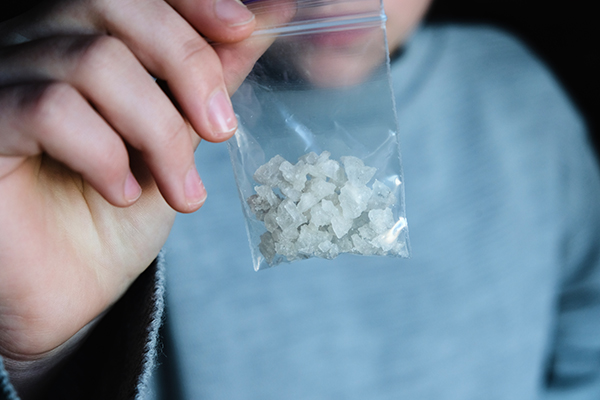Drug tests are often performed on people for various reasons. For example, it’s common for employers to do drug testing for pre-employment, in on-the-job accident situations, or if they suspect one may be high to deter their employees from using drugs and alcohol. Drug screening is also used in sports, for legal or forensic purposes, and in the healthcare setting in emergency situations, by psychiatrists, internists, family medicine physicians, or to monitor opioid use. If you currently know an addict or a recovering addict, chances are you have heard them talk about drug testing. This may be something they have even discussed in detail with you at some point. But, have you ever had someone tell you they recently had to do a drug screen and it came back as being positive for meth? Then they say, but “I don’t use meth”? Chances are you probably don’t believe them, especially if they are still in active addiction. But, can a drug test read false positive for methamphetamine? 
What Medications Can Cause a False-Positive for Meth?
Five common medications can cause a false positive for methamphetamine. These meds include pseudoephedrine, labetalol, bupropion, trazodone, and chlorpromazine. Some other medications that can cause a false-positive result can be ADHD meds such as Ritalin (methylphenidate), Quinolone antibiotics like Levofloxacin or Ofloxacin, or Metformin which is a common medication used to treat type 2 diabetes. It is always important to let all healthcare providers know any regular medications you may be on or have recently taken a medication. This is especially important if you know you have to take a drug screen. In employment or other situations, it’s also good to have a list of any meds you’ve recently taken readily available if a situation like this were to occur.
False Positive With a Meth Drug Test?
A lot of initial drug screens are done using instant-read devices because they are much cheaper. These are called urine drug screen immunoassays. These tests are then usually sent off to a lab for confirmation using GC/MS (gas chromatography/mass spectrometry). Occasionally, these tests will come up with false-positive readings for different drugs, including meth or methamphetamine. The National Library of Medicine “Commonly prescribed medications and potential false-positive urine drug screens”:
A comprehensive literature review was conducted to identify false-positive UDSs associated with all clinic formulary medications, as well as common nonprescription medications. False-positive results for amphetamine and methamphetamine were the most commonly reported. False-positive results for methadone, opioids, phencyclidine, barbiturates, cannabinoids, and benzodiazepines were also reported in patients taking commonly used medications. The most commonly used tests to screen urine for drugs of abuse are immunoassays, even though false-positive results for drugs of abuse have been reported with a number of these rapid-screening products. Results from such tests should be confirmed using additional analytical methods, including gas chromatography-mass spectrometry. (NLM)
So if someone tells you they tested positive for meth but have never used it or haven’t recently used it, they may be telling you the truth.
Call Evoke Wellness for Immediate Entry to Treatment
Evoke Wellness offers a safe and comfortable environment for medical detoxification. Our patients are treated extensively so that minimal discomfort is experienced during the detox process. We provide residential treatment in a structured environment and then provide you with after-care support, which is very important when being treated for addiction. Evoke Wellness is here to help you get on the road to long-term recovery.


